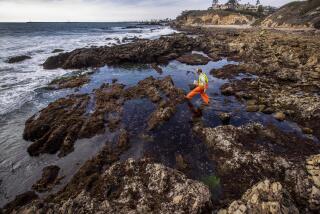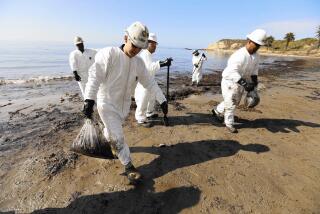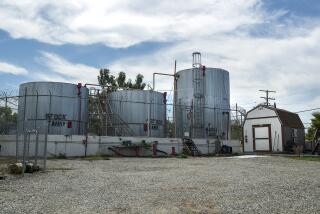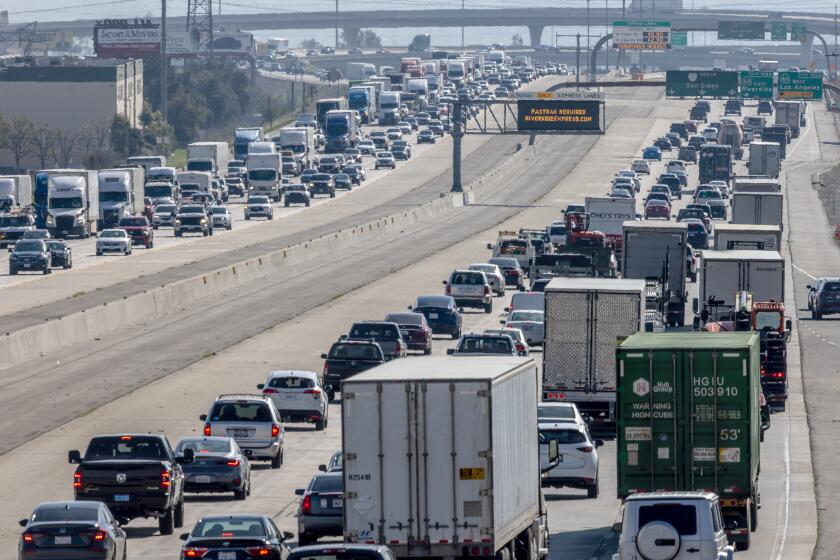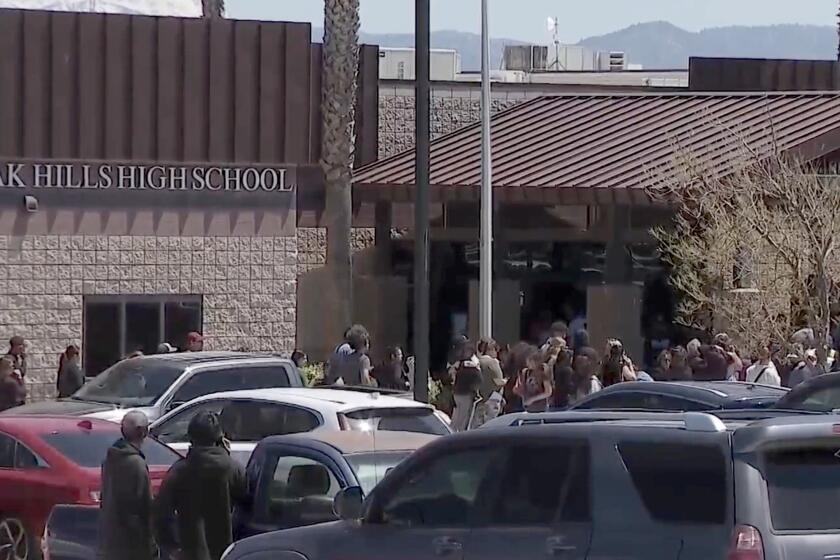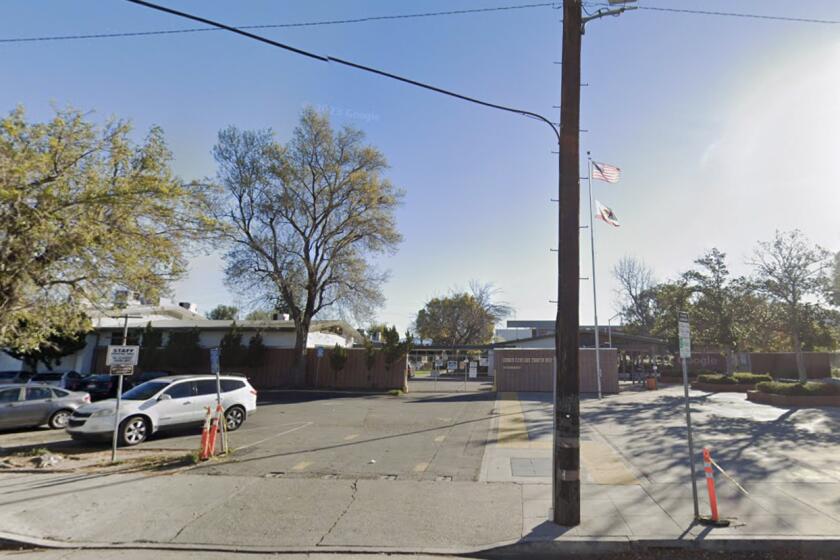Gov. Jerry Brown overhauls oil pipeline laws after Santa Barbara spill
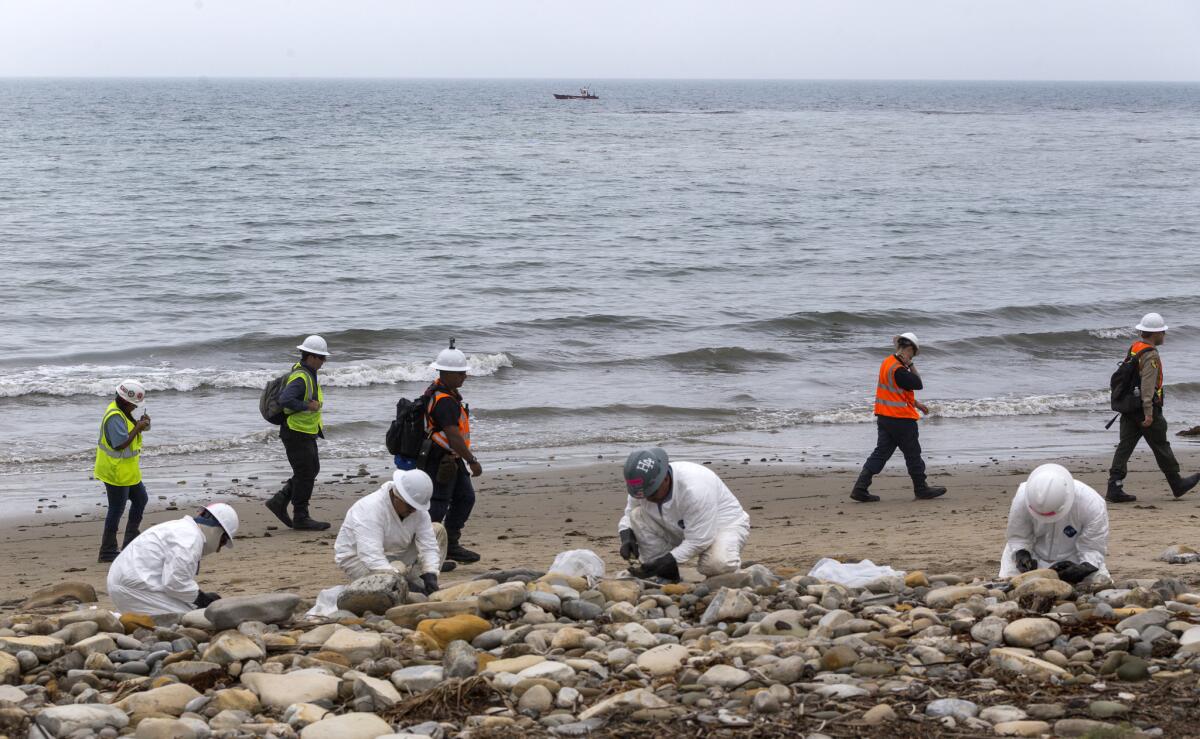
Shoreline Cleanup Assessment Technique team members evaluate oil coverage as workers clean up areas affected by an oil spill at Refugio State Beach, north of Goleta, Calif., in June.
Just months after a pipeline rupture dumped 20,000 gallons of oil into the ocean near Santa Barbara, Gov. Jerry Brown on Thursday signed a package of bills aimed at preventing and better responding to future spills.
Brown said he signed the bills “in order to more fully protect our inland and coastal communities and environments from the harm of oil spills.”
The governor acted to require the state fire marshal to annually inspect all intrastate pipelines under its jurisdiction by approving SB 295. The May 19 spill at Refugio State Beach involved a section of corroded pipeline that was being inspected every other year. More than 100,000 gallons spilled, with one-fifth of it reaching the ocean.
SIGN UP for the free Essential Politics newsletter >>
Brown also approved a bill, AB 864, requiring oil pipelines in environmentally sensitive areas be fitted with remote leak detectors and automatic shut-off valves.
A third bill, SB 414, seeks to speed response to spills by enlisting commercial fisherman and other boat operators to help contain leaks in their area. They would be outfitted with containment gear.
“The devastating effects from the oil spill this year in Santa Barbara County impacted birds, mammals and other marine life and caused the closure of beaches and fishing resulting in economic losses,” Brown wrote in a signing message.
“Our coastline and surrounding environments contribute to the great and unique landscape of California,” Brown added. “These bills improve planning for and prevention of oil spills and our response when spills occur.”
The measures were introduced by Sen. Hannah-Beth Jackson and Assemblyman Das Williams, both Democrats from Santa Barbara.
“The Refugio Oil Spill gave us a prime and devastating example of a defective pipeline that was not equipped with leak detection technology and automatic shut-off valves,” Williams said.
“We know there is always tremendous risk to areas surrounding offshore and onshore coastal drilling,” he added. “The law should reflect this truth by requiring operators to take every precaution available and use the best achievable technology when drilling and transporting oil and gas.”
Some 195 birds and 106 marine mammals have been found dead in the spill area.
The leak detectors and shut-off valves must be used in replacement pipelines in ecologically sensitive areas in the coastal zone starting Jan. 1, 2018.
Existing pipelines must be retrofitted by Jan. 1, 2020, with plans submitted by July 1, 2018.
There was no official opposition to the bills, according to an analyst for the Legislature. The Western States Petroleum Assn., whose members include pepeline operators, was neutral on the bills.
More to Read
Start your day right
Sign up for Essential California for news, features and recommendations from the L.A. Times and beyond in your inbox six days a week.
You may occasionally receive promotional content from the Los Angeles Times.
